




 |
   |
 |
|
Tasmin Archer Archive Arden House The Ark |
Armand Art Art Bears Art By Machinery |
Joseph Arthur Arti & Mestieri Arts the Beatdoctor As You Like it |
Asgard Ash Ra Tempel Ashcroft & Bacon Richard Ashcroft |
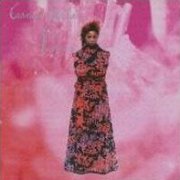 |
Bloom (1996, 40.25) ***/T½ |
|
| Sweet Little Truth After Hell One More Good Night With the Boys Rian Falling I Like it So Breaking My Back I Would Love to Be Right You Made a Fool of Me |
Memory Give in With Grace In Your Garden |
|
Current availability:
Mellotron used:
Tasmin Archer hails from Bradford, rarely regarded as one of the finer places to live in our small island (sorry, Bradfordians) and even more rarely recognised as a hotbed of musical talent. Archer is actually a fine singer-songwriter, even if her second album, 1996's Bloom, has something of a pop tinge about it. It's one of those middling kind of albums, where every now and again it grabs your attention (a hook, a witty lyric) before letting it go again.
Producer Mitchell Froom plays Mellotron, with a strong string part on opener Sweet Little Truth and an uncredited one on Give In With Grace, although Froom is credited with 'keyboards' on the track. So; not a bad album of its type, if a little unexciting, with a couple of Mellotron tracks. Good God, call that a review??
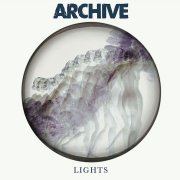 |
Lights (2006, 62.02) ***/TTT |
|
| Sane Sit Back Down Veins System Fold Lights I Will Fade Headlights |
Programmed Black Taste of Blood |
|
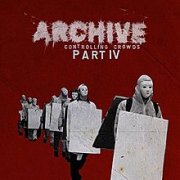 |
Controlling Crowds Part IV (2009, 48.53) **/½ |
|
| Pills Lines The Empty Bottle Remove Come on Get High Thought Conditioning The Feeling of Losing Everything Blood in Numbers |
To the End Pictures Lunar Bender |
|
Current availability:
Mellotrons used:
Archive formed in the mid-'90s, working their way through a succession of vocalists over the ensuing decade or so. They started off as a Massive Attack-style trip-hop outfit, elements of that style staying with them to the present day, adding in generic indie and electronica along the way. 2006's Lights is their fifth album and could almost (but only almost) have 'progressive' added in as an influence, especially on the eighteen-minute title track. Mellotron on several tracks from noted (now ex-) owner and Rick Wakeman/Take That bassist and all-round nice guy Lee Pomeroy, with strings on Sit Back Down, Veins and Headlights, plus shedloads of choir and strings on the title track, particularly towards the end. Dense, murky choirs on Black and more strings on Taste Of Blood make for a reasonably satisfying Mellotron album, rather unexpectedly, as until I saw Lee was involved, I'd assumed sample use.
Sadly, 2009's Controlling Crowds Part IV (Parts I-III comprise their previous release, Controlling Crowds) is a far less satisfying listen, their more experimental elements sacrificed to Great God Mainstream, for all the good it's done them. Any better tracks? The punchy Blood In Numbers, but that's it. Incidentally, what makes their various vocalists think it's OK to use the 'Oasis melody'? You know, major third slurred to minor. Horrible. Pomeroy's on credited M400 again, with choirs on three tracks: radically pitchbent on Come On Get High, distant on The Feeling Of Losing Everything and volume-pedalled on Blood In Numbers, albeit so subliminally that even three tracks'-worth only gains the album half a T.
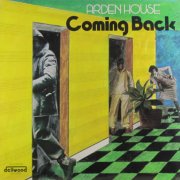 |
Coming Back (1977, 32.12) ***/TTThe Way You FeelMidnight Mary Streakin' Pleasure Trip Follow Me Down Lady Modesty Somewhere Beyond the Sun Coming Back |
Current availability:
Mellotron used:
Along with Zoldar & Clark, Arden House were an unintentional nom-de-plume of US proggers Jasper Wrath, who, somewhat unwisely (and probably in desperation), signed a deal with tax-scam label Dellwood, the end results appearing under the two different names as Zoldar & Clark and Coming Back. This is definitely the lesser of the two, its shorter material sitting rather uncomfortably in a mid-'70s pop/rock zone, at its best (unsurprisingly) on its proggier material, notably Follow Me Down, Somewhere Beyond The Sun and, above all, the near-nine minute closing title track. Its worst? The barroom boogie of the then-topical Streakin' and the crummy Lady Modesty.
Michael Soldan plays Jasper Wrath's Mellotron, with a slightly ill-fitting string part on Pleasure Trip, full-on chordal choirs opening Follow Me Down, with strings further in and vibes and strings on Somewhere Beyond The Sun. This is, in a very literal kind of way, an album of two halves, half its length good-to-great and the other half... not. Thanks to the blog owner who uploaded this obscurity; just don't go expecting a lost classic and you shouldn't be disappointed.
See: Jasper Wrath | Zoldar & Clark
Arena (UK) see: |
 |
Argent (UK) see: |
 |
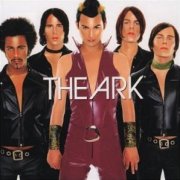 |
We Are the Ark (2000, 47.24) ***½/T |
|
| Hey Modern Days Echo Chamber Joy Surrender It Takes a Fool to Remain Sane Ain't Too Proud to Bow Bottleneck Barbiturate Let Your Body Decide Patchouli |
This Sad Bouquet Angelheads Laurel Wreath You, Who Stole My Solitude |
|
Current availability:
Mellotron used:
The Ark are a difficult one to categorise, to be honest; usually referred to as 'glam rock', this seems to refer more to their chosen mode of dress than their music, although I can see where that description's coming from. Going by the two albums I've heard, they bear comparison with Mott the Hoople, another 'glam' act who were so much more than that. Basically, we're talking tuneful, literate pop/rock with a glammy edge, with lyrics that tackle uncomfortable subjects and tunes that stick in your head without the crassness of most modern 'commercial' stuff. Somehow or other, these guys actually played Sweden's 2007 Eurovision entry, although they failed dismally... Their debut, 2000's We Are the Ark, sets their stall out nicely with memorable material like the (very) slightly Bowie-esque Hey Modern Days, the near-electropop of You, Who Stole My Solitude with its insanely catchy synth coda and the sleazy piano ballad Bottleneck Barbiturate.
Vocalist/bandleader Ola Salo plays Mellotron on Joy Surrender, with strings all over the thing which are cranky enough to possibly even be real. A current band playing music inspired by the best of the early-'70s UK glam scene, then, who actually know how to write a tune or three. This is essentially a fun album that should probably be played in your car with the top down; not that many people bother with them in the UK, 'cos you'd get wet, but you know what I mean. Not a lot of Mellotron, but this album's charms lie elsewhere.
See: Samples etc.
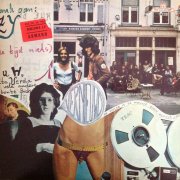 |
Rue de la Paix (1972, 36.37) **½/TT |
|
| Vrijheid Makker Word Us Wakker De Oorlog Woedt in Jezelf Hou Van Mij Waterfiets Ik Heb't Gevonden In de Kosmos Vogels en Bloemen |
Teveel Werelden De Plantagewerker De Nederlander is een Meelzak Hij Komt Hen de Strot Uit Rue de la Paix |
|
Current availability:
Mellotron used:
Herman George "Armand" van Loenhout's third album, Rue de la Paix, is a folky Dutch-language singer-songwriter effort, very much of its era, at its least dull on the spinet-driven Hou Van Mij and the closing title track. I'm sure this is good at what it does, but it's irreversibly locked into its time and place, for better or worse. Mostly worse, sadly.
Co-producer Conny Peters plays Mellotron, amongst other things, with occasional background strings on opener Vrijheid, flute melodies and chordal strings on Hou Van Mij and Vogels En Bloemen and strings on Hij Komt Hen De Strot Uit, although all the album's brass is real, while the 'flutes' on De Plantagewerker are recorders. Armand was still making records as recently as 2015, his career only terminated by his death later that year.
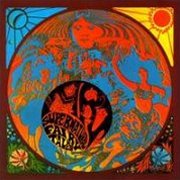 |
Supernatural Fairy Tales (1967, 37.06) ***½/½ |
|
| I Think I'm Going Weird What's That Sound (For What it's Worth) African Thing Room With a View Flying Anchors Supernatural Fairy Tale Love is Real Come on Up |
Brothers Dads and Mothers Talkin' to Myself Alive Not Dead Rome Take Away Three |
|
Current availability:
Mellotron used:
Art were essentially precursors to the ever-changing Spooky Tooth, sans Gary Wright, but they seem to do just fine without him, thanks very much. It's been pointed out that it's actually exceedingly heavy for the time, with Luther Grosvenor (later of Mott the Hoople, of course) seriously overdoing the fuzz-guitar on most tracks; this is well ahead of the first Yes album. The songwriting is pretty typical 'it's the Summer Of Love, maaan' stuff, although somehow... nastier, including a cover of Buffalo Springfield's cynical For What It's Worth, retitled What's That Sound, although they'd probably have been better off sticking to their own material, to be honest. I Think I'm Going Weird opens like The Who on steroids (more steroids?) and the title track rocks like a bastard, as does Come On Up, so don't expect too much 'hello trees, hello flowers' stuff here...
Only one Mellotron track, with strings on Supernatural Fairy Tale itself, presumably from Mike Harrison; not the most essential use, but worth hearing if you're going to buy the album anyway. Buy this to hear an undiscovered slice of proto-hard rock psych, well ahead of its time.
See: Spooky Tooth
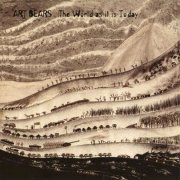 |
The World as it is Today (1981, 31.17) ***½/T½ |
|
| The Song of Investment Capital Overseas TRUTH FREEDOM (Armed) PEACE CIVILISATION DEMOCRACY The Song of the Martyrs LAW |
The Song of the Monopolists The Song of the Dignity of Labour Under Capital ALBION AWAKE! |
|
Current availability:
Mellotron used:
The Art Bears originally formed as a Henry Cow side-project, named for an abbreviated quote from Jane Ellen Harrison's Ancient Art and Ritual: "...Art bears traces of its collective, social origin". Suitably intellectual and enigmatic, I think, also drily witty. The trio's last album, 1981's The World as it is Today, is difficult to compare to anyone or anything else, frankly. Political avant-progressive? Marxist RIO? A bloody racket? All of the above? Dagmar Krause's most singular vocal style dominates proceedings, which isn't to say Fred Frith's guitar, keyboard and nearly everything else work and Chris Cutler's mad percussives aren't of equal importance. Best track? Funny kind of question to ask, really. Opener The Song Of Investment Capital Overseas, perhaps, or closer ALBION AWAKE!? And most unlistenable? Dagmar's unearthly screams on FREEDOM duke it out with the exceedingly dissonant piano on The Song Of The Dignity Of Labour Under Capital. Call it a draw.
Frith plays Mellotron (as he did on two contemporaneous solo albums), with wonky strings on FREEDOM, more regular ones on (Armed) PEACE and CIVILISATION (plus choirs on the latter?), leaving closer ALBION AWAKE!, with its mental string part as the album's chief Mellotron track, although I suspect the strings on DEMOCRACY are Frith's overdubbed violin and viola. Now, there's something of a story attached to the last-named: The Art Bears were clearly a major influence on Cardiacs, to the point where I have it on excellent authority that ALBION AWAKE!, reversed and heavily amended, is the basis for that band's ever-changing intro tape. This is an album of deeply uneasy listening and is all the better for it; I'm not sure when I'll listen to it next, but that's hardly the point. Music like this needs to exist, if only as an antidote to the vast quantities of shite pushed on us by commercial concerns. Play it to the kind of person that listens to daytime radio.
See: Fred Frith
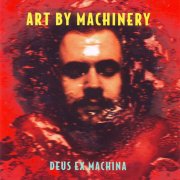 |
Deus ex Machina (1995, 50.13) ***/T½ |
|
| Strange One Inch Closer I Breathe Rosegarden Pain Junk Swallow Deus ex Machina |
Skinny Mushroom |
|
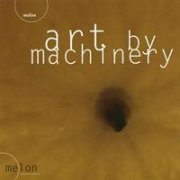 |
Melon (1996, 40.04) **½/½ |
|
| Melon Smoother Cobweb Esox Lucius Pighead X Short Cuts I Remember California |
Ambient Song Gummy |
|
Current availability:
Mellotrons used:
Art By Machinery were a slightly proggy goth/metal bunch from Norway who released three albums in the mid-'90s, the first of which was Deus ex Machina. It's... a slightly proggy goth/metal album from Norway, actually; most tracks either crunching or etherealing (hey! A new word!) their way through a few minutes of doomy stuff with sub-Jim Morrison vocals - pretty much as you'd expect, then. In fairness, it doesn't offend, but nor does it really impinge itself on the listener at all, which may've been the band's problem. Best track? Deus Ex Machina itself, the one point on the album where they really combine their influences properly and make a genuinely progressive piece of music. Producer Lars Lien (Badger, Dadafon, 3rd & the Mortal) plays Mellotron strings on Junk, Mushroom and the title track, the best use being on the last-named, making it easily the most worthwhile thing here.
The band followed up the next year with Melon, but whatever had fuelled their debut was gone, leaving merely a rather empty set of goth/electronica/metal efforts of little substance, with few obvious highpoints, closer Gummy being possibly the best thing here. Lien on Mellotron again, with only a brief string part on I Remember California to relieve the boredom. Given that their albums are clearly long out of print, the band have taken the enlightened step of making two of them available as free downloads from their site; goth types will probably go a bundle on these, so grab 'em while you can. Mellotron? I'm never convinced that Lien's productions use real Mellotron, but what's here is decent enough without ever being in any danger of being outstanding.
 |
Redemption's Son (2002, 73.14) **½/TT½ |
|
| Redemption's Son Honey and the Moon You Could Be in Jail I Would Rather Hide Innocent World September Baby Nation of Slaves Evidence |
Buy a Bag Termite Song Permission Favorite Girl You Are the Dark In the Night Blue Lips You've Been Loved |
|
Current availability:
Mellotron used:
Akron's Joseph Arthur struck lucky when Peter Gabriel's A&R man played him one of Arthur's demos, resulting in him becoming the first American signing to Gabriel's Real World label. His debut, 1997's Big City Secrets, isn't bad, but after 2000's Come to Where I'm From, 2002's Redemption's Son, sadly, merely bores and, what's more, bores for over seventy long, long minutes. OK, it's not actually terrible, but I don't think I'm being unfair in describing it as a somewhat lacklustre release, which could have done with a little less emoting and a little more... mystery.
Plenty of Mellotron from Pat Sansone, with strings on the title track, flutes on Honey And The Moon and September Baby, upfront flutes and cellos on I Would Rather Hide (the album's top Mellotron track - spot the key-click) and cellos on Innocent World and You've Been Loved.
See: Samples etc.
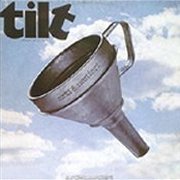 |
Tilt - Immagini per un Orecchio (1974, 36.46) ****½/TTTGravità 9,81Strips Corrosione Positivo/Negativo In Cammino Ferenheit Articolazioni Tilt |
 |
Giro di Valzer per Domani (1975, 44.21) ***½/½ |
|
| Valzer per Domani Mirafiori Saper Sentire Nove Luna Prima Da Nord a Sud Nove Luna Dopo Mescal Mescalero |
Dimensione Terra Aria Pesante Consapevolezza parte 1 Sagra Consapevolezza parte 2 Rinuncia Marilyn Terminal |
|
Current availability:
Mellotron used:
One from Scott Hamrick
The Italian progressive rock scene of the 1970s is legendary and was incredibly prolific. There were literally hundreds of bands, many of whom produced albums that were as good as much of what came out of England at the time. However, many of these bands did little to distinguish themselves much from each other - thus creating a fairly homogeneous, but original style of prog rock unique to Italy. While much of this music was of high quality, only a few bands from this scene really stood out due to originality or other exceptional qualities. One of these standout bands was Arti & Mestieri.
This band's first album, which blends symphonic prog and aggressive jazz fusion laced with occasional hints of the avant-garde, put them on a level with the most original and best of their contemporaries. Think of them as a largely instrumental blend of the best of Area and early PFM, add in the supercharged, jaw-droppingly precise jazz drumming of Furio Chirico (formerly of The Trip) and you may have a hint of what to expect on this wonderful album. While Chirico is almost surely the star player of the band, all members give top-notch performances on guitar, violin, saxophone, bass and various keyboards, including ARP synths and Mellotron. These players seemed to thrive on stops, starts and rapid changes in direction. Check out how the band alternates faultlessly between gallops at blazing speed and gentle swing on Articolazioni. Tilt is delicate and mellow one minute and fiery and muscular the next. All the while, it maintains a polish of professionalism and clarity of vision rarely equalled in Itaprog. This is celebratory, robust music that is rich with emotion as well as technique, but devoid of pretension.
Even though Mellotron is used on every track but one, the Mellotronic content on Tilt is not overwhelming in terms of how much it is used. They didn't slather it on like early King Crimson or Anekdoten. It's just another instrument in the orchestra (the subtitle for this album translates to 'images for an orchestra'). Its string section does provide rather dry sounding chordal backdrop more often than the other keyboards, but it's always in a tasteful, non-gratuitous manner. Mellotron flute makes a very brief appearance on the 13-minute Articolazioni, sounding beautiful and introspective in its usual way. It also appears briefly as a double to the violin melody in Positivo/Negativo. Only Tilt, the odd closer of this album, shows the Mellotron in a more unusual light. This slightly demented sounding reprise of several of the instrumental themes of the album uses random synth blips, multitracked sax and violin playing odd harmonies on top of a bed of rather ominous Mellotron strings. It must be a Cramps label thing, as Area was fond of doing experimental little instrumentals like this at the end of their albums too.
Tilt is probably not a Mellotron classic, but it is a very classic example of the best of Italian prog rock that is made all the better for its Mellotron content. Buy it!
| Scott Hamrick |
Back to me... I still haven't heard Tilt, but Giro di Valzer per Domani is an energetic, jazz-flavoured prog album, unlike the bulk of the Italian progressive scene of the time. Much of the credited 'Mellotron' is undeniably string synth, making me wonder whether a real Mellotron ever got within spitting distance of this album. I'm assuming the distant strings on Nove Luna Prima are tape-driven, but I wouldn't absolutely swear to it. Incidentally, the CD adds a couple of tracks, inserting them after the original album's fourth track, rather than at the end, as you'd expect.
A revitalised Arti & Mestieri appeared around 2000, though it seems that First Live in Japan (reviewed here) features samples, despite protestations to the contrary. Anyway, Giro di Valzer...'s a good album, but I suspect their debut will blow me away more.
See: Samples etc. | Beppe Crovella | Cantina Sociale | Romantic Warriors | Secret Cinema | Tower
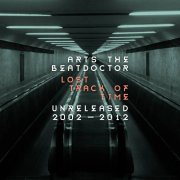 |
Lost Track of Time: Unreleased 2002-2012 (2013, 97.59) ***/½ |
|||
| All We Are These Pieces Fit Between the Lines All This Time Looking for Clues Hiding (AtB remix) Midnight Oil Push on |
Part of the Crow Cellar Door Backward Interlude Quiet Chords Highway Hypnosis Hikari Googolplex Black Coffee (AtB remix) |
Forever Repeating Rewrite it Early Light Hard to Find How it Ends Snow Hide (AtB remix) Solitaire |
Cloud Nine Body Double Bird's Eye Complete All We Are (Yppah remix) Complete (Xploding Plastix remix) |
|
Current availability:
Mellotron used:
Bas "Arts the Beatdoctor" Vermolen is a producer, in the sense of producing electronic music, drawing in influences from hip-hop, techno, chillout, ambient, soul, jazz... Not my bag, but it would simply be ignorant to dismiss his talent for audio manipulation on 2013's Lost Track of Time: Unreleased 2002-2012. It seems Vermolen released a new track every day throughout February of that year (a handful being earlier recordings), adding a couple to complete this lengthy set, the whole giving the lie to the old saw that 'this stuff all sounds the same'.
Lars Fredrik Frøislie (Wobbler, a million others) is credited with 'Mellotron (Mrk2)' on final track Complete (Xploding Plastix Remix), as Arts the Beatdoctor & Pax. MkII? Frøislie owns three M400s, but I'm not aware of him owning a rare MkII. Borrowed? Hired? Not actually a MkII? Anyway, we get occasional reverbed flutes, making this a serious 'don't bother' on the Mellotron front.
 |
Ages Come & Ages Go (2021, recorded 1973-75, 31.43) ***½/TT½No More Sunshine Till MayOne By One Wait for You Ages Come, Ages Go Turn Around September Song Together Bed of Tears |
Current availability:
Mellotron used:
As You Like it (including ex-members of Tales of Justine) were one of a plethora of small-time British progressive outfits of the early-to-mid-'70s, many of whom never got past the 'club' stage (see: The Mynd), never mind a record contract. Fortunately (like many), they recorded a couple of demos, in 1973 and '75, unearthed and released in 2021 by Seelie Court as Ages Come & Ages Go. Despite their plus points (not least fiery keys man John Ellis' ripping Hammond work), you can hear why the band never made it; they never really escaped their psychedelic past, while their material was too short, never allowing them to stretch out. In fairness, this may have been a decision made when picking songs to demo, but without any live recordings, it seems we'll never know. More than anyone, I'm reminded of Fantasy, a similar outfit who got themselves signed to Polydor, but did little better commercially. 'Song-based progressive' is probably an apt description, possibly at its best on five-minute opener No More Sunshine Till May (longest track!), Wait For You and the more laid-back September Song, although nothing here will disappoint era fans.
Ellis (RIP) plays Mellotron on what I presume are the later recordings, with an odd cello part on Wait For You (spot those double bass notes!), a stunning flute part kicking off Turn Around, repeating halfway through, complete with pitchbends, plus a rising string part, a speedy flute part and chordal strings on Together and orchestral-alike strings on closer Bed Of Tears (or is that a string synth?). So, no classic, but a solid set of material, more than worthy of escaping the vaults, with some startlingly good Mellotron work for good measure, er, for measure (see what I did there?).
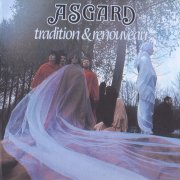 |
Tradition & Renouveau (1978, 34.29) ****/TT |
||
| Le Braconnier Quand Je Menais Mes Chevaux Boire J'ai Mon Ami Sous les Brandebourgs L'Alouette est sur la Branche D'ou Venez-Vous Belle La Petite Hirondelle Ce Soir Francois Villon Le Lac d'Argent |
Le Vent Les Landes d'Harou |
||
Current availability:
Mellotron used:
Asgard (not to be confused with the ropey early-'90s Italian band) were originally a folk trio who released their debut, L'Hirondelle, in 1976, before adding a keyboard player and becoming more progressive. Their second (and seemingly final) album was '78's Tradition & Renouveau (Tradition and Renewal), a beautiful example of what happens when folk musicians play progressive rock and get the balance right. Side one is more acoustic, but on side two they allow Guy Printemps to let rip on the keys, mostly Moog, piano and Mellotron, which he uses with great subtlety, dovetailing nicely with the approach of the rest of the band. Vocals are in French, but as with Gallic folk gods Malicorne, you really shouldn't let this put you off if you don't speak the language.
Despite having a flautist (Bernard Darsh) on board, J'ai Mon Ami Sous Les Brandebourgs definitely features Mellotron flute at points, alongside the real thing, as does Le Lac D'Argent. However, the album's chief Mellotron use is the surprisingly full-on overdubbed strings and choir on La Petite Hirondelle, with more choirs on Ce Soir Francois Villon and closer Les Landes D'Harou, making for what ends up being a pretty reasonable Mellotron Album.
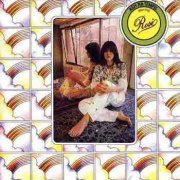 |
Starring Rosi (1972, 34.31) ***/TLaughter LovingDay Dream Schizo Cosmic Tango Interplay of Forces The Fairy Dance Bring Me Up |
Current availability:
Mellotron used:
My only contact with any of Manuel Göttsching's work before now has been Ashra's decidedly ropey Correlations, so Join Inn and Starring Rosi are absolute revelations. The Mellotron-free Join Inn (***½) consists of two side-long jams, featuring the mercurial Klaus Schulze's drumming on one side, while on Starring Rosi Göttsching uses a different set of musicians, including his girlfriend Rosi Müller, who also guested on Join Inn. Confused? Good. Starring Rosi couldn't be more different to its predecessor, to be honest; it's as if it was recorded by a different band (OK, to an extent it was). It's a mixture of Allman Bros-type jams (!) and a more trippy, typically German style of stoned-out hippy stuff, with the inimitable Rosi, er, 'doing her thing'.
As far as Göttsching's Mellotron work is concerned, there might be something on Schizo, but the only seriously audible use is a nice string part on The Fairy Dance, so don't go splashing out on this on account of its Mellotron use. So; while Starring Rosi is OK, I'd say Join Inn is the noticeably better album and I'm told that Ash Ra Tempel (as against Ashra) made better albums anyway. Buy according to taste.
See: Klaus Schulze | Ashra
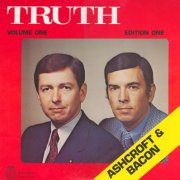 |
Truth: Volume One, Edition One (1974?, 33.13) ½/T½ |
|
| Why Me, Lord Reach Out to Jesus Jesus Hold My Hand The Broken Vessel King Jesus Unseen Hand Didn't He Shine I Find No Fault in Him |
More About Jesus We've Come This Far By Faith Come Holy Spirit Jesus is Lord of All |
|
Current availability:
Mellotron used:
Ashcroft & Bacon. Ashcroft & Bacon. Hmmm. So which Ashcroft, precisely, might this be? An immediately recognisable John Ashcroft, as it happens, subsequently Dubya's attorney general in the early 2000s. Yeah, that John Ashcroft. It seems that he and his equally creepy pal Max Bacon formed a 'gospel' (i.e. Christian country) duo during their joint tenures as Missouri state self-appointed 'leaders' of some description in the early '70s, releasing the abominable Truth: Volume One, Edition One around 1974.
So, how bad is it? How bad d'you think it is? It's beyond bad, that's how bad it is. Its least awful moments include the upbeat, banjo-driven Jesus Hold My Hand and Unseen Hand, where the dynamic duo's backing band briefly manage to kick into a decent country-rock groove, but everything else (and, if truth be told, those two as well) is maudlin, mawkish country-CCM slop. Low points? All of it, really, although the repeated title during I Find No Fault In Him's chorus is particularly bad, while the titular clean-cut God-botherers' vocal 'talents' display vastly more enthusiasm than actual skill, with a distinctly cavalier approach to, y'know, pitch.
An unknown (but perfectly competent) musician adds Mellotron to several tracks, almost certainly due to the project's obviously low budget, with strings on Why Me, Lord (good question, good question), The Broken Vessel, Didn't He Shine (particularly Mellotronic on this one) and closer Jesus Is Lord Of All. Does it improve the album? Does it fuck; this actually goes beyond kitsch, into a hitherto unknown dimension of pure, undiluted awfulness, where screaming with laughter is the only relief from the searing pain induced by the 'harmonies', for want of a better word, never mind the lyrics. Actually, I have several better words, but just for once, I shan't use them. Truth is one of a handful of albums on this site to earn the coveted 'half star' award, for albums so utterly godawful that beating one's head against a brick wall until oblivion is attained seems like a good idea in comparison. To be honest, I go into 'the zone' while listening to albums this bad, where disbelief is suspended, taste is revoked and normal rules don't apply. Good job, really. Oh and the Mellotron use is actually pretty decent, all things considered.
 |
Alone With Everybody (2000, 59.52) ***/T |
|
| A Song for the Lovers I Get My Beat Brave New World New York You on My Mind in My Sleep Crazy World On a Beach Money to Burn |
Slow Was My Heart C'mon People (We're Making it Now) Everybody |
|
Current availability:
Mellotron used:
After The Verve imploded in the late '90s, various members went various ways; vocalist Ashcroft elected to record Alone With Everybody, producing what I suppose could be called a modern singer-songwriter album; largely mid-paced, plenty of acoustic guitar, pedal steel (B.J. Cole, of course), real strings - you get the idea. There are the requisite number of tracks with programmed percussion to keep radio programmers happy and Ashcroft's voice veers between 'sensitive' and a more macho style, particularly on the upbeat New York. This is the sort of album that fulsome reviewers often describe as having a 'lambent beauty' or somesuch; I'm afraid that to my ears it's just plain dull, but then what do I know? You may have gathered by now that I'm not wild about this sort of stuff, but it's done well enough that I can't find it in myself to give it a real slagging.
There are plenty of 'real' instruments on display, along with the programmed stuff, including an all-too brief Hammond part by Chuck Leavell on You On My Mind In My Sleep. Ashcroft plays Mellotron on two tracks: Slow Was My Heart is a balladic number with a little Mellotron flute near the beginning, though I can't tell whether the strings later in the song are real or Mellotronic. Everybody is another mid-paced effort and this time the strings are definitely Mellotron-produced, along with some more flutes (spot the key-click at the end of the track). Like the rest of the album, the Mellotron parts are decidedly average without actually being bad, so I find it difficult to recommend this on any grounds, really, unless you're a Verve fan, in which case you've probably got it already.
See: The Verve